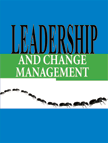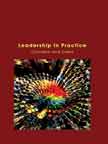Mumbai's Dabbawalas - An Entrepreneurial Success Story
|
|
ICMR HOME | Case Studies Collection
Case Details:
Case Code : LDEN028
Case Length : 10 Pages
Period : 1950-2004
Pub Date : 2004
Teaching Note : Available
Organization : Nutan Mumbai Tiffin Box Suppliers
Industry : Service
Countries : USA
To download Mumbai's Dabbawalas - An Entrepreneurial Success Story case study
(Case Code: LDEN028) click on the button below, and select the case from the list of available cases:

Price:
For delivery in electronic format: Rs. 300;
For delivery through courier (within India): Rs. 300 + Shipping & Handling Charges extra
»
Leadership and Entrepreneurship Case Studies
» Case Studies Collection
» ICMR HOME
» Short Case Studies
» View Detailed Pricing Info
» How To Order This Case
» Business Case Studies
» Area Specific Case Studies
» Industry Wise Case Studies
» Company Wise Case Studies

Please note:
This case study was compiled from published sources, and is intended to be used as a basis for class discussion. It is not intended to illustrate either effective or ineffective handling of a management situation. Nor is it a primary information source.
Chat with us

Please leave your feedback

|
|




<< Previous
"A model of managerial and organizational simplicity"
- C K Prahalad, Professor, University of Michigan Business
School and Management Guru, commenting on the Dabbawalas' operations.1
"The fascinating story of Mumbai's Dabbawalas is an
inspiration to all organizations aspiring to compete in the global market place"
- Pradeep B. Deshpande, President of Six Sigma and Advanced
Controls, Inc. and Professor of Chemical Engineering, University of Louisville.2
A Six Sigma Performance
|
Every day, battling the traffic and crowds of Mumbai city,
the Dabbawalas,3 also known as Tiffinwallahs,4
unfailingly delivered thousands of dabbas to hungry people and later returned
the empty dabbas to where they came from. The Dabbawalas delivered either
home-cooked meals from clients' homes or lunches ordered for a monthly fee, from
women who cook at their homes according to the clients' specifications. The Dabbawalas' service was used by both working people and school children. In 1998, Forbes Global magazine, conducted a quality assurance study on the Dabbawalas' operations and gave it a Six Sigma efficiency rating of 99.999999;
the Dabbawalas made one error in six million transactions.
|

|
That put them on the list of Six Sigma5 rated companies, along with
multinationals like Motorola and GE. Achieving this rating was no mean feat,
considering that the Dabbawalas did not use any technology or paperwork, and
that most of them were illiterate or semiliterate.
Apart from Forbes, the Dabbawalas have aroused the interest of many other
international organizations, media and academia.
|
|
In 1998, two Dutch
filmmakers, Jascha De Wilde and Chris Relleke made a documentary called
'Dabbawallahs, Mumbai's unique lunch service'. The film focussed on how the
tradition of eating home-cooked meals, and a business based on that, could
survive in a cosmopolitan city like Mumbai. In July 2001, The Christian
Science Monitor, an international newspaper published from Boston, Mass.,
USA, covered the Dabbawalas6 in an
article called 'Fastest Food: It's Big Mac vs. Bombay's dabbawallahs'. In
2002, Jonathan Harley, a reporter, did a story on the Dabbawalas with the
Australian Broadcasting Corporation (ABC). In 2003, BBC also aired a program
on the Dabbawalas, which was part of a series on unique businesses of the
world. |
Mumbais Dabbawalas - An Entrepreneurial Success Story - Next Page>>
|
|










